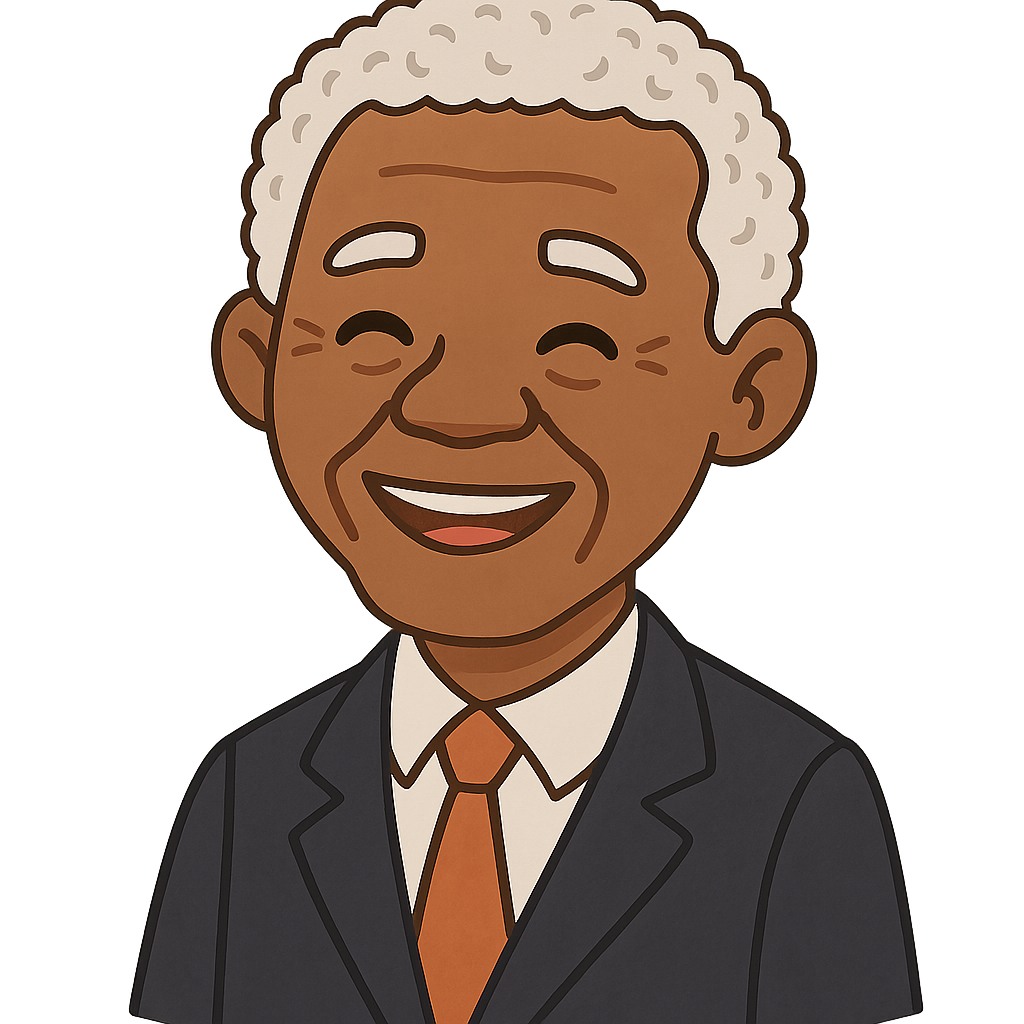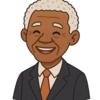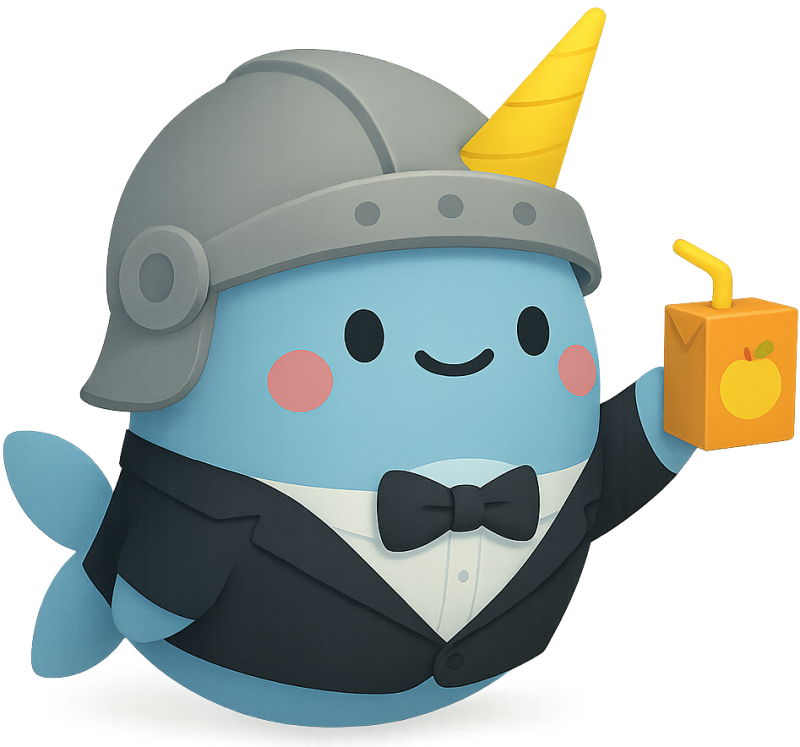Nelson Mandela: My Journey to Freedom
Hello! My name is Nelson Mandela. When I was born on July 18, 1918, my father gave me the name Rolihlahla, which in my language means “troublemaker.” I grew up in a small, sunny village in South Africa called Qunu. Life was simple and beautiful. I spent most of my days as a herd-boy, looking after our family’s cattle and sheep out in the wide-open fields. I didn't have fancy toys, but I had my imagination. The earth was my playground, and the sky was my roof. I also learned so much just by watching the elders in my tribe. They would gather to discuss problems in our community, and I was amazed at how they listened carefully to everyone before making a decision that was fair for all. Those early lessons about fairness and leadership stayed with me my entire life.
When I grew older, I moved to the big city of Johannesburg to become a lawyer. I wanted to use my voice to help people. But as soon as I arrived, I saw a deep and terrible problem that hurt my heart. My country was ruled by a system called apartheid. This was a set of cruel, unfair laws made by the government that separated people just because of the color of their skin. Because I was a Black person, I was not allowed to vote. I couldn't live in certain neighborhoods, go to the best schools, or even sit on the same benches as white people. It felt like a dark cloud hung over my people. Seeing this injustice every single day made me feel a fire in my soul. I knew I couldn't just stand by and watch. I had to do something to change it.
I decided to join a group called the African National Congress, or the ANC. With my friends and fellow leaders, we began to protest against the apartheid government. We organized marches and spoke out, demanding that every person in South Africa be treated with dignity and respect. We wanted freedom and equality for all. But the government did not want to listen. They saw our fight for justice as a threat, and they decided I was a dangerous troublemaker. In 1964, they arrested me and sent me to a prison on a cold, windy place called Robben Island. I was kept there for 27 long years. Can you imagine? It was a very difficult time, but even in that dark place, I never let go of my hope. I read books, studied, and wrote letters to keep my mind sharp and my spirit strong. I told my friends, “Our struggle is my life.” I knew that one day, we would be free.
Finally, after so many years, the world's voice grew too loud for the government to ignore. People all over the globe demanded my freedom. In 1990, the prison doors finally opened, and I walked out as a free man! Just a few years later, in 1994, something miraculous happened. South Africa held its very first election where people of all skin colors could vote. Millions of people stood in line for hours, filled with hope, and they chose me to be their first democratically elected president. Instead of being angry about the past, I chose forgiveness. I wanted to build a new country where everyone belonged. I called our new South Africa a “Rainbow Nation,” a place where all colors could come together to create something beautiful. I lived a long and full life, and in 2013, my journey on this Earth came to an end, but I hope my story shows that even after the darkest night, the sun will always rise.
Reading Comprehension Questions
Click to see answer



